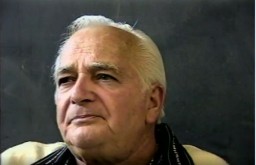You searched for: Holocaust
<< Previous | Displaying results 1051-1060 of 1158 for "Holocaust" | Next >>
-
Edek Blonder
ID CardThe Blonder family lived in a two-room apartment in the back of a store. Edek was the third of eight children. His father eked out a meager living by tutoring students in Jewish subjects, and beginning in 1930 he worked distributing food vouchers to the poor. 1933-39: After graduating from secondary school, Edek was invited to play soccer professionally on the local Club Maccabi team, which was part of a Jewish soccer league. Club Maccabi arranged for him to attend trade school to learn cabinet making at…
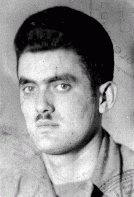
-
Brandenburg T4 Facility
ArticleBrandenburg was one of six killing centers the Nazis established to murder patients with disabilities under the so-called "euthanasia" program.
-
Manya Friedman
ArticleExplore Manya Friedmann’s biography and listen to her describe her experiences following the liberation of Auschwitz.
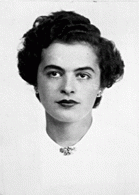
-
Léon Degrelle
ArticleLéon Degrelle was an extreme right-wing Belgian politician and Nazi collaborator. After the war, he continued to spread pro-Nazi propaganda for decades. Learn more.
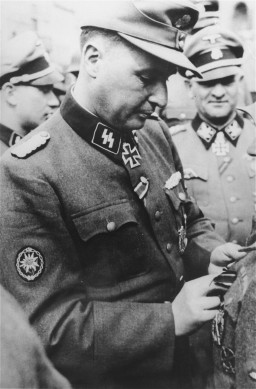
-
War Refugee Board: Background and Establishment
ArticleIn January 1944, FDR established the War Refugee Board which was charged with “immediate rescue and relief of the Jews of Europe and other victims of enemy persecution.”
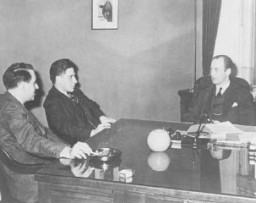
-
Mass Shootings at Babyn Yar (Babi Yar)
ArticleAt Babyn Yar in late September 1941, SS and German police units and their auxiliaries perpetrated one of the largest massacres of World War II.
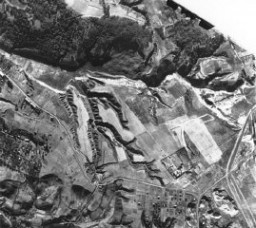
-
Alisa (Lisa) Nussbaum Derman describes joining the Nekama (Revenge) Jewish partisan unit led by Josef Glazman in the Naroch Forest
Oral HistoryLisa was one of three children born to a religious Jewish family. Following the German occupation of her hometown in 1939, Lisa and her family moved first to Augustow and then to Slonim (in Soviet-occupied eastern Poland). German troops captured Slonim in June 1941, during the invasion of the Soviet Union. In Slonim, the Germans established a ghetto which existed from 1941 to 1942. Lisa eventually escaped from Slonim, and went first to Grodno and then to Vilna, where she joined the resistance movement. She…
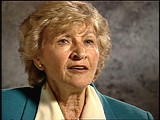
-
Sandor (Shony) Alex Braun describes how music gave him the strength to survive while imprisoned in concentration camps
Oral HistoryShony was born to religious Jewish parents in a small Transylvanian city. He began to learn the violin at age 5. His town was occupied by Hungary in 1940 and by Germany in 1944. In May 1944, he was deported to the Auschwitz camp in Poland. He was transferred to the Natzweiler camp system in France and then to Dachau, where he was liberated by US troops in April 1945. In 1950, he immigrated to the United States, and became a composer and a professional violinist.
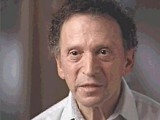
-
Ruth Berkowicz Segal describes deciding to leave Warsaw shortly after the outbreak of war
Oral HistoryWhen German forces invaded Poland in September 1939, Ruth's father fled to eastern Poland. Upon the Soviet occupation of eastern Poland, he fled to Lithuania. Ruth left Warsaw with two friends to find her father and later joined him in Vilna. After Soviet forces occupied Lithuania, Ruth and her father obtained transit visas for Japan, but only Ruth obtained a Soviet exit visa. Her father insisted she leave and not wait for him. Ruth traveled by the Trans-Siberian Railroad across the Soviet Union to…
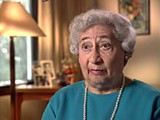
-
Gary Bigus describes Berlin during the 1936 Olympics
Oral HistoryGary (Gerhard) was born in Berlin, Germany, in 1924. His father owned a men’s clothing store. As a child, Gary faced antisemitism from his peers. His family’s store was boycotted several times, and ultimately destroyed in 1938 during Kristallnacht. As the city prepared for tourists to arrive in Berlin for the 1936 Olympics, Gary noticed anti-Jewish signs vanish from storefronts. In 1939, Gary and his parents escaped Germany after securing passage to Shanghai, China. His father died of illness in…
